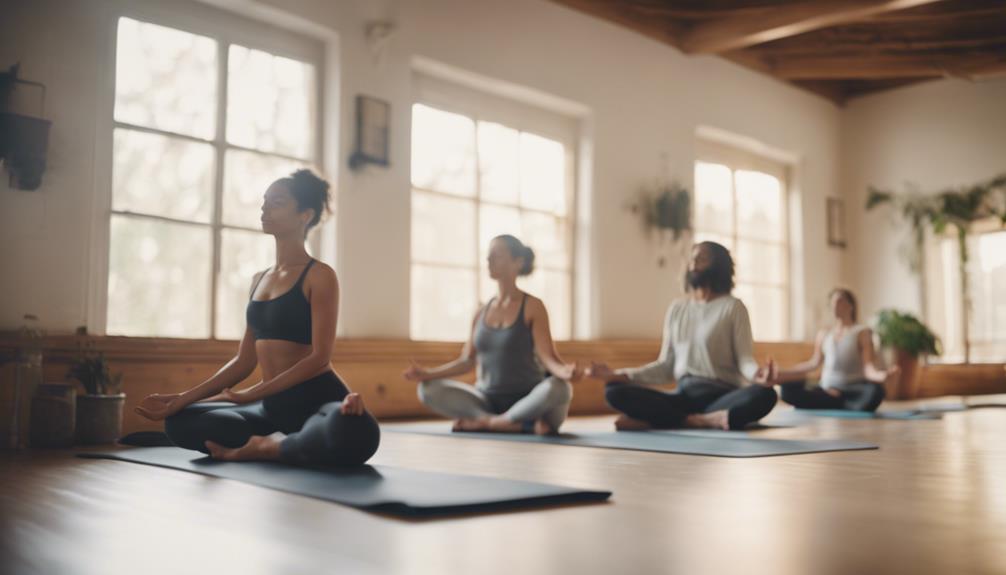Does Yoga Reduce Stress

Yoga has been practiced for thousands of years, revered for its holistic approach to physical, mental, and spiritual well-being. Among its many benefits, one question frequently arises: does yoga reduce stress? In this blog post, we will explore the intricate relationship between yoga and stress reduction, examining the scientific evidence, the various types of yoga practices, and tips for incorporating yoga into your daily routine.
The Science of Stress: Understanding the Impact on Your Body
Before delving into yoga’s effects, it’s crucial to understand what stress is and how it impacts our bodies. Stress is the body’s natural response to challenges or demands, triggering the “fight or flight” response. This reaction releases hormones like adrenaline and cortisol, which prepare the body to face perceived threats. While short-term stress can be beneficial, chronic stress can lead to a host of health problems, including anxiety, depression, cardiovascular issues, and a weakened immune system. Understanding this context sets the stage for exploring how yoga can help mitigate these effects.
How Yoga Works to Reduce Stress: A Closer Look
Yoga combines physical postures, breathing exercises, and meditation, all of which contribute to stress reduction. When you practice yoga, your body transitions from a state of heightened stress to a more relaxed state. The physical postures improve flexibility and strength, while deep breathing techniques help lower heart rates and reduce cortisol levels. Moreover, meditation fosters a sense of peace and mindfulness, allowing you to focus on the present moment rather than ruminating over past anxieties or future worries. This multifaceted approach is why many practitioners report feeling a significant decrease in stress after their sessions.
The Role of Mindfulness in Yoga and Stress Reduction
Mindfulness is a key component of yoga that directly contributes to its stress-relieving effects. By promoting awareness of the present moment, mindfulness helps practitioners detach from negative thought patterns and emotional stressors. Research has shown that mindfulness meditation can significantly reduce symptoms of anxiety and depression. In yoga, mindfulness is cultivated through breath control (pranayama) and conscious movement, allowing individuals to reconnect with their bodies and emotions. This reconnection can lead to improved emotional regulation and a greater sense of control over one’s thoughts and feelings, ultimately reducing stress levels.
Related Posts:
Types of Yoga Practices for Stress Relief
Not all yoga styles are created equal when it comes to stress reduction. Various forms of yoga cater to different needs and preferences. For instance, Hatha Yoga is often recommended for beginners due to its slower pace and emphasis on basic postures. Restorative Yoga focuses on relaxation and healing, using props to support the body in gentle poses. Yin Yoga, on the other hand, targets the connective tissues and promotes deep stretching, which can help release physical tension stored in the body. Finally, Vinyasa Yoga offers a more dynamic practice that combines movement with breath, providing an invigorating yet calming experience. Exploring these different styles can help individuals find the best fit for their stress management needs.
Scientific Studies Supporting Yoga as a Stress Reliever
Numerous studies underscore the efficacy of yoga in reducing stress. For instance, a meta-analysis published in the *Journal of Clinical Psychology* found that individuals who practiced yoga significantly reported lower levels of stress and anxiety compared to those who did not engage in any form of physical activity. Additionally, a study from the *Harvard Medical School* indicated that regular yoga practice could lead to changes in the brain’s response to stress, improving emotional resilience. These findings reinforce the idea that yoga is not just a physical exercise but a powerful tool for mental health and well-being.
Incorporating Yoga into Your Daily Routine
To experience the stress-reducing benefits of yoga, consistency is key. Here are some practical tips for incorporating yoga into your daily routine:
1. Start Small: Begin with short sessions, even just 10-15 minutes a day. Gradually increase the duration as you become more comfortable.
2. Create a Dedicated Space: Set up a tranquil area in your home for yoga practice, free from distractions.
3. Use Online Resources: Take advantage of online classes and tutorials that cater to your skill level and preferred style. Many platforms offer guided sessions focused specifically on stress relief.
4. Practice Mindfulness: Incorporate mindfulness into your daily life outside of yoga. Take moments throughout the day to breathe deeply and focus on the present.
5. Join a Community: Consider joining a local yoga class or an online community to stay motivated and engaged with your practice.
Complementing Yoga with Other Stress-Reduction Techniques
While yoga is a powerful tool for reducing stress, it can be even more effective when combined with other stress management techniques. Consider integrating practices such as meditation, mindfulness, and deep breathing exercises into your routine. Regular physical activity, a balanced diet, and adequate sleep are also vital components of overall well-being and stress management. By adopting a holistic approach that includes various strategies, you can enhance the benefits of yoga and create a more resilient mindset.
Conclusion: Embrace Yoga for a Stress-Free Life
In conclusion, the question, does yoga reduce stress? is met with a resounding yes. With its comprehensive approach to physical and mental well-being, yoga offers a multitude of benefits that can help alleviate stress and promote a sense of calm. By understanding the science behind stress and exploring the different types of yoga practices, you can find the tools necessary to manage your stress effectively. Start your yoga journey today and discover the profound impact it can have on your life and well-being. Embrace this ancient practice as a pathway to a more peaceful, stress-free existence.Can Yoga Help ScoliosisHow Many Yoga Sutras Are ThereSmartmat